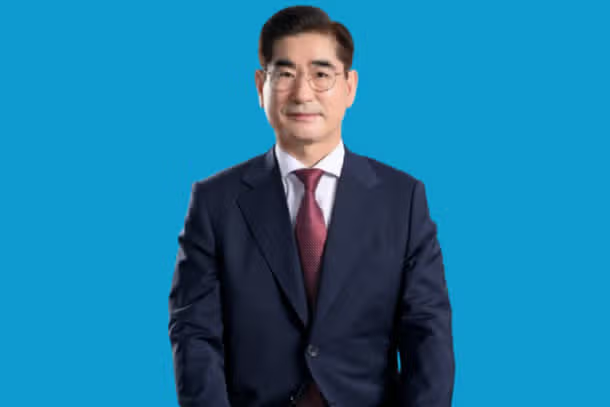Former South Korean defence minister Kim Yong-hyun
South Korean Authorities Detain Former Defense Minister Kim Yong-Hyun Over Role in Martial Law
On Sunday (8 December), Kim Yong-hyun, the ex-defense minister of South Korea, was taken into custody due to his purported involvement in the martial law declaration made by President Yoon Suk Yeol earlier that week, as reported by the Yonhap News Agency.
On Saturday, President Yoon narrowly evaded impeachment following his short-lived martial law announcement made earlier in the week.
Nonetheless, the leader of his political party revealed that Yoon plans to soon hand over his responsibilities and resign.
Han Dong-hoon, the leader of the ruling party, is scheduled to have a meeting with Prime Minister Han Duck-soo.
Kim submitted his resignation on Wednesday and is regarded as a vital player behind the martial law order.
Members of the opposition and a high-ranking military official have claimed in their impeachment submissions that Kim recommended the measure to President Yoon.
Prosecutors interrogated Kim after he voluntarily reported to the Seoul Central District Prosecutors’ Office on Sunday around 1:30 am local time (1630 GMT on Saturday).
Three minor opposition parties have lodged a complaint charging Yoon, Kim, and martial law commander Park An-su with insurrection.
According to South Korean legislation, leading an insurrection, if found guilty, can lead to a punishment of death or life confinement, either with or without hard labor.
Opposition parliamentarians accused President Yoon of deploying military forces to disrupt their vote aimed at nullifying the martial law order, which they contended was unconstitutional.
Reports from Yonhap indicate that the South Korean National Police conducted a raid on Kim’s office on Sunday, as part of an inquiry into claims of treason involving President Yoon and senior officials.
In a speech broadcast on Saturday, President Yoon expressed remorse for his martial law directive, affirming that he would accept both legal and political accountability for his decision, despite not offering to resign.
Yoon mentioned that he would leave his destiny in the hands of the ruling party, a statement that Ruling Party leader Han Dong-hoon later interpreted as a de facto intention to step down prematurely.
Han remarked that Yoon would be "effectively removed from his responsibilities" and also noted that the party would collaborate with the prime minister to manage governance.
On Tuesday night, Yoon granted extensive emergency powers to the military targeting "anti-state forces" and obstructive political adversaries.
He revoked the order six hours later after the parliament defied military and police barricades to vote unanimously against the declaration.
The announcement of martial law has plunged South Korea, a crucial ally of the United States and the fourth-largest economy in Asia, into a profound political crisis that threatens its reputation as a model of democracy.

No comments:
Post a Comment